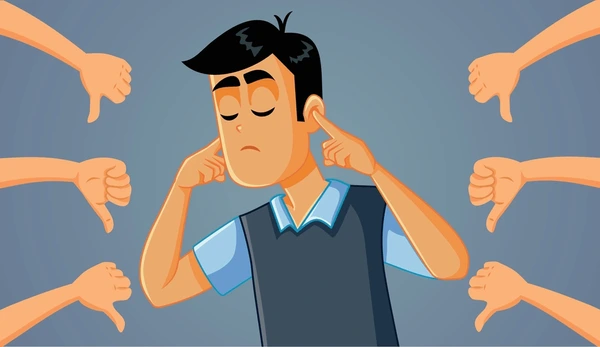The Impact of Ignoring Negative Thoughts
We all experience negative thoughts from time to time. Whether it’s self-doubt, anxiety, or a general feeling of negativity, these thoughts can be overwhelming and difficult to ignore. Unfortunately, many of us have learned to ignore our negative thoughts as a way of coping. But what impact does this have on our mental health and well-being?
Ignoring negative thoughts may seem like a good idea in the short term. After all, who wants to dwell on negative thoughts? But in the long term, ignoring negative thoughts can have a serious impact on our mental health. Here are just a few of the ways that ignoring negative thoughts can be harmful.
It can lead to a buildup of stress
When we ignore negative thoughts, we are essentially pushing them aside and pretending they don’t exist. But these thoughts don’t go away; they simply build up inside us. Over time, this buildup can lead to increased stress and anxiety. Eventually, this stress can become overwhelming and lead to physical symptoms such as headaches, stomachaches, and insomnia.
It can cause us to miss important signals
Negative thoughts are often a signal that something is wrong. When we ignore these thoughts, we may be missing important signals that our body and mind are trying to send us. For example, if you’re feeling anxious about a situation, ignoring those feelings could cause you to miss important warning signs that the situation is not safe or healthy for you.
It can lead to a negative self-image
When we ignore negative thoughts, we are essentially telling ourselves that we are not important enough to deal with our own problems. This can lead to a negative self-image and a lack of self-confidence. Over time, this can become a vicious cycle, as our negative self-image leads to more negative thoughts, which we continue to ignore.
It can prevent us from finding solutions
Negative thoughts are often a sign that we need to make changes in our lives. When we ignore these thoughts, we are essentially preventing ourselves from finding solutions to our problems. For example, if you’re feeling unhappy in your job, ignoring those feelings could prevent you from finding a new job that makes you happier.
So, what can we do instead of ignoring negative thoughts? Here are a few strategies that can help.
Acknowledge your negative thoughts
The first step in dealing with negative thoughts is to acknowledge them. Don’t try to push them aside or pretend they don’t exist. Instead, take a few moments to recognize and accept your negative thoughts.
Practice mindfulness
Mindfulness is a powerful tool for dealing with negative thoughts. By practicing mindfulness, you can learn to observe your thoughts without judgment or attachment. This can help you to detach from your negative thoughts and see them for what they are: temporary and fleeting.
Talk to someone Sometimes, the best way to deal with negative thoughts is to talk to someone. This could be a friend, family member, or therapist. Talking to someone can help you to gain a new perspective on your thoughts and find solutions to your problems.
Sometimes, the best way to deal with negative thoughts is to talk to someone. This could be a friend, family member, or therapist. Talking to someone can help you to gain a new perspective on your thoughts and find solutions to your problems.
Take action
When you have negative thoughts, it’s often a sign that you need to take action. This could mean making changes in your life, setting boundaries, or seeking professional help. Whatever action you need to take, don’t be afraid to take it.
FAQs:
Q: Is it normal to have negative thoughts?
A: Yes, it’s completely normal to have negative thoughts from time to time. Everyone experiences negative thoughts at some point in their lives.
Q: Can ignoring negative thoughts lead to depression?
A: Yes, ignoring negative thoughts can lead to depression. When we ignore our negative thoughts, they can build up over time and lead to feelings of hopelessness and helplessness.

